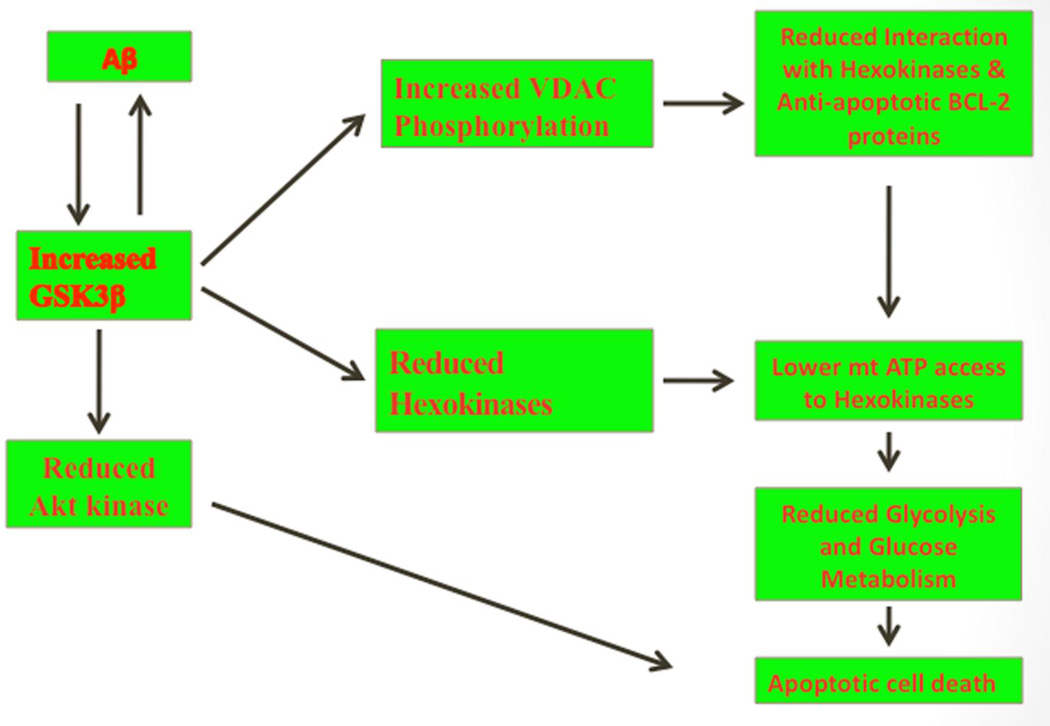Figure 5.
A proposed model of amyloid beta-induced GSK3β and mitochondrial dysfunction in Alzheimer’s disease. Increasing evidence suggests that in Alzheimer’s disease pathogenesis, elevated GSK3β activity is a key event in abnormal APP processing, increased Aβ production, and hyperphosphorylation of tau. Amyloid beta-induced GSK3β is associated with mitochondrial dysfunction via the phosphorylation of VDAC1 and dissociation of heoxokinases with VDAC1 in Alzheimer’s disease. Elevated GSK3β further activate abnormal APP processing, leading to increased Aβ production, and hyperphosphorylation of tau, like vicious cycle. Further, GSK3β phosphorylates VDAC1 on threonine 51, resulting in the detachment of hexokinase from VDAC1 and anti-apoptotic Bcl2 family of proteins. The detached heoxikinase from mitochondria, may not be able to have access to mitochondria ATP and may not able to supply necessary ATP to glycolysis and glucose metabolism. Further, elevated GSK3β suppress Akt kinase, reduced Akt kinase may not prevent apoptotic cell death in Alzheimer’s disease neurons.

